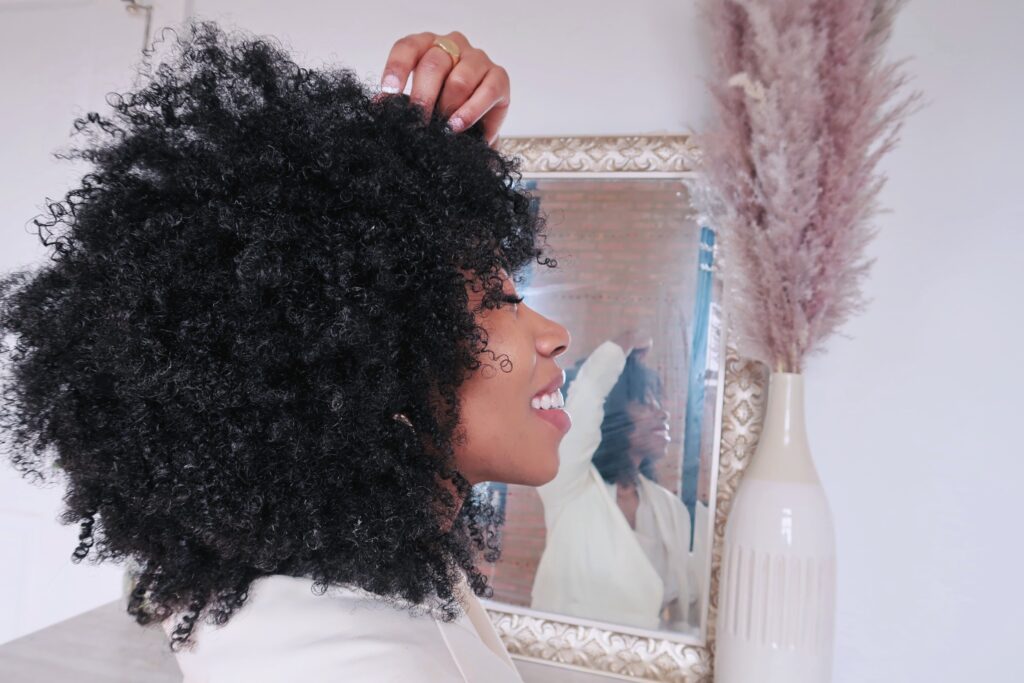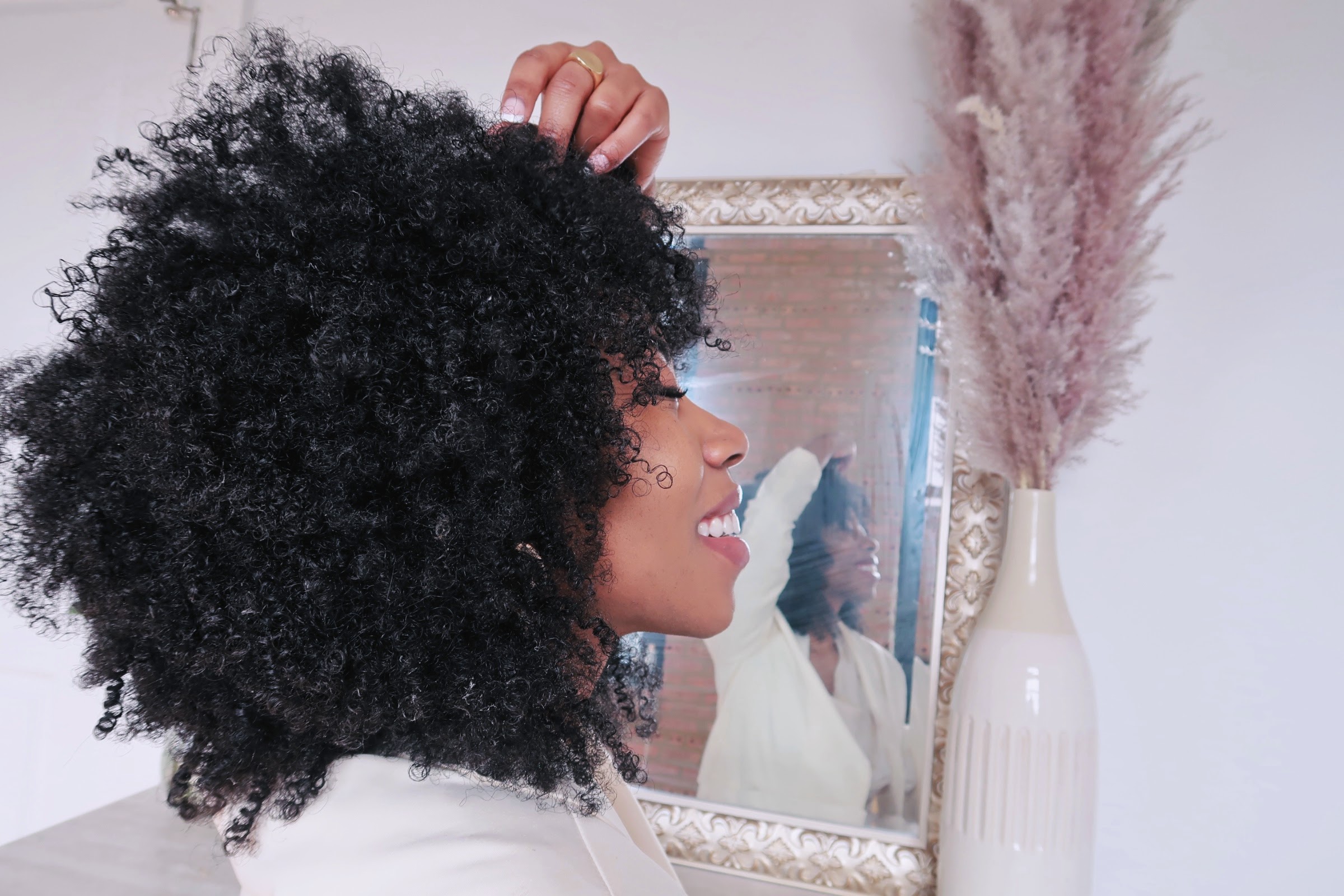FEATURED POSTS
SPRING WORKWEAR
SPRING 2024
READ MORE
SUMMER WORKWEAR
SUMMER 2024
READ MORE
FALL WORKWEAR
FALL 2023
explore THE SEASON
WINTER
SPRING
SUMMER
FALL
shop ALL WORKWEAR
SHOP AMAZON STOREFRONT
As a first-generation Nigerian-American and an HR leader, I’ve witnessed firsthand the challenges that arise from cultural misunderstandings and biases, particularly those surrounding natural hair. The CROWN Act, which stands for “Creating a Respectful and Open World for Natural Hair,” is a significant piece of legislation aimed at ending hair discrimination. In the United States, hair discrimination has disproportionately affected African Americans, particularly in workplaces and schools. The CROWN Act seeks to address this by prohibiting discrimination based on hair texture and protective hairstyles such as braids, locs, twists, and bantu knots.

History and Background
The CROWN Act was first introduced in California in 2019 by Senator Holly J. Mitchell. California became the first state to enact the law, paving the way for other states to follow suit. Since its inception, several states have adopted the CROWN Act, and it has sparked a national conversation about the importance of protecting cultural identity and natural hair.
Notable CROWN Act Cases in the United States
1. Andrew Johnson – New Jersey, December 2018
Andrew Johnson, a high school wrestler, was forced to cut his dreadlocks before a match by a referee who deemed his hairstyle inappropriate. The incident, captured on video, sparked national outrage and highlighted the necessity for protective legislation against hair discrimination. This case became a pivotal moment leading to New Jersey adopting the CROWN Act in December 2019.
2. Chastity Jones – Alabama, May 2010
Chastity Jones received a job offer from Catastrophe Management Solutions, which was rescinded when she refused to cut her locs. The company claimed her hairstyle violated their grooming policy. Jones filed a lawsuit, but the Eleventh Circuit Court of Appeals ruled against her. Although this case did not occur in a CROWN Act state, it underscores the pervasive nature of hair discrimination and the need for federal protections.
3. Mya and Deanna Cook – Massachusetts, April 2017
Mya and Deanna Cook, twin sisters, were disciplined by their school for wearing box braids, which the administration claimed violated the dress code. The school faced backlash, and the case drew attention to hair discrimination in educational settings. Massachusetts later adopted its version of the CROWN Act, known as the “Act Prohibiting Discrimination Based on Natural Hairstyles,” in July 2021.
4. Gabrielle Union – California, November 2019
Actress Gabrielle Union was dismissed from her role as a judge on “America’s Got Talent,” allegedly due to her hairstyles being considered “too black.” Union’s case brought significant media attention and highlighted the issue of hair discrimination in the entertainment industry. This incident underscored the importance of California’s CROWN Act, which had been enacted just months prior, in July 2019.
Timeline of CROWN Act Legislation and Cases
- July 2019: California becomes the first state to pass the CROWN Act.
- December 2018: Andrew Johnson’s incident in New Jersey.
- July 2019: New York enacts the CROWN Act following various incidents of hair discrimination.
- December 2019: New Jersey adopts the CROWN Act after Andrew Johnson’s case.
- March 2020: Virginia signs the CROWN Act into law.
- July 2021: Massachusetts adopts its version of the CROWN Act, partly inspired by the Cook sisters’ case.
- 2022-2023: Additional states including Colorado, Washington, Maryland, Connecticut, New Mexico, Delaware, and Illinois pass similar legislation.
Steps to Take if You Face Hair Discrimination
If you or someone you know has been discriminated against based on hair texture or style, there are several steps you can take:
- Document the Incident: Record the details of the discriminatory act, including dates, times, locations, and any witnesses. This documentation will be crucial for any formal complaints or legal action.
- Report to HR: If the discrimination occurs in the workplace, report the incident to your Human Resources department. Ensure that you follow your company’s official complaint procedure.
- File a Complaint with the EEOC: The Equal Employment Opportunity Commission (EEOC) handles complaints about workplace discrimination. You can file a complaint online, by mail, or in person at your nearest EEOC office.
- Seek Legal Counsel: Contact an attorney who specializes in employment discrimination. They can provide you with legal advice and help you navigate the complexities of your case.
- Utilize Advocacy Organizations: Organizations such as the NAACP Legal Defense Fund, the ACLU, and the CROWN Coalition offer resources and support for individuals facing hair discrimination.
Resources for Natural Hair Care
Maintaining and styling natural hair can be both a beautiful and empowering experience. Here are some resources and tips for natural hair care:.
1. Online Communities and Tutorials
- YouTube: Channels such as Naptural85, GlamFam, and TheChicNatural offer tutorials on styling, caring for, and maintaining natural hair.
- Natural Hair Forums: Websites like CurlyNikki and NaturallyCurly provide forums where individuals can share tips, experiences, and advice.
2. Professional Hair Care
- Find a Natural Hair Stylist: Websites like Styleseat and the app TressNoir can help you find professional natural hair stylists in your area.
- Salon Services: Many salons now offer services specifically for natural hair, including protective styling, treatments, and maintenance.
The CROWN Act represents a critical step toward ending hair discrimination and promoting inclusivity in both professional and educational settings. As someone who is passionate about diversity and inclusion, I believe it’s crucial to understand your rights and utilize available resources to take action against discrimination. Celebrating the beauty and diversity of natural hair not only empowers individuals but also fosters a more inclusive and respectful world for everyone.
Ever experienced questions about your hair at work, check out this article to understand how to handle this experiences HERE. For more information on the CROWN Act and to stay updated on new developments, visit the official CROWN Coalition website and follow advocacy groups on social media.
Additional Resources
By staying informed and proactive, we can work together to create a world where natural hair is embraced and respected in all its forms.
Leave a Reply
NKECHI
meet
Meet the founder behind Corporate Curly – a brand crafted with love to uplift the modern working woman through natural hair care, workwear inspiration, and career guidance. This journey isn't just about business; it's about pouring my heart into empowering women like you to embrace their authenticity and thrive in every aspect of their professional lives.

Be the first to comment